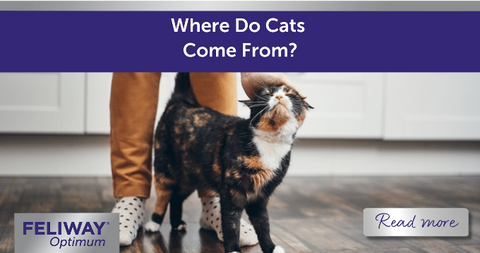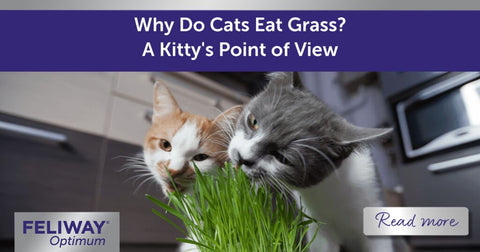
The Problem of Neighbourhood Cats
Most cat owners love seeing cats out and about, roaming around their neighbourhoods! However, for our own kitties, the presence of other cats can often be stressful, and lead to problems for both feline friends and their owners.
As cats grow in popularity as pets, urban areas are seeing a higher concentration of cats in a single street or town than would occur naturally. This leads to territorial conflicts and behavioural issues, much of which would have been avoided historically, given how cats tend to interact.
Cat owners need to carefully manage the situation to ensure harmony and reduce their pet's stress.
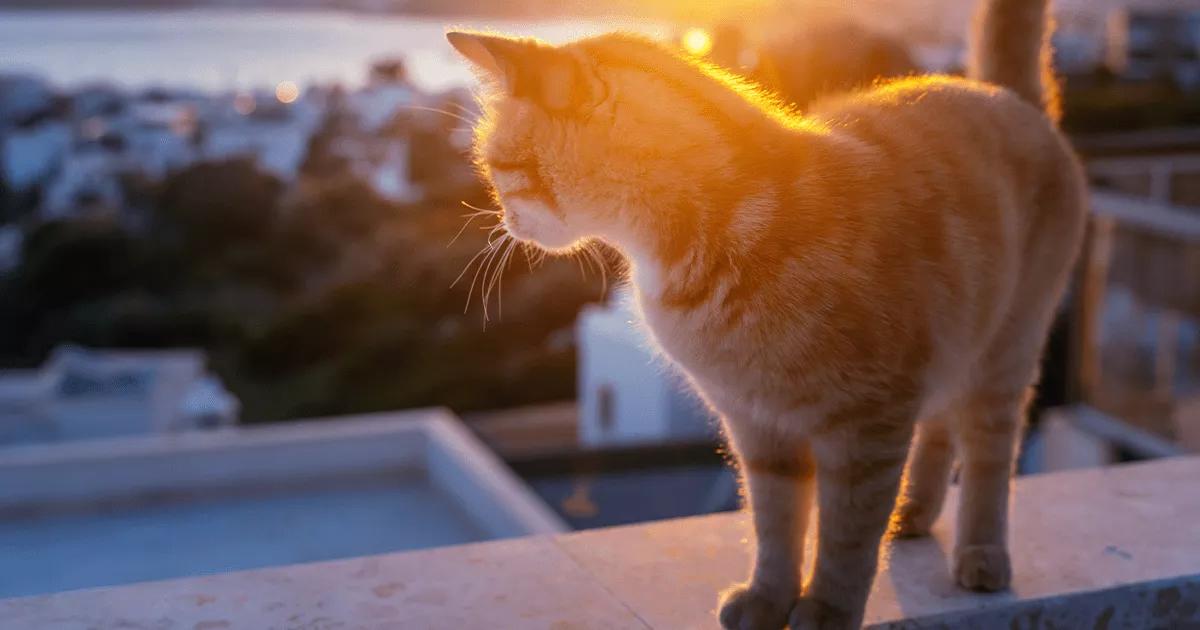
Cats in Urban Areas
The increased concentration of cats in urban areas has created unnatural social dynamics. Historically, cats wouldn’t often encounter each other while out patrolling their territory, as they have perfected the art of long-distance communication through scent marking (urine marking, facial rubbing and scratching surfaces), allowing them to avoid potential conflict.
If an overlap in territories occurred, it was in their interest not to cross paths, as a hostile interaction posed an unnecessary risk, given that they need to stay fit and healthy for hunting. It works for both cats to naturally develop a timeshare arrangement where they each maintain part of their territory without other cats around.
However, in urban areas, territories overlap to such an extent that it's nearly impossible for cats to avoid meeting one another, and a single garden may fall into the territory of multiple cats. They may spend time in each other's garden, use them as thoroughfares or, in some cases, enter one another's home.
Many cats quickly learn how to monopolise their space, leading to intimidating behaviour such as staring and blocking access to resources. This can harm the wellbeing of free-roaming cats, as well as those who spend most of their time indoors.
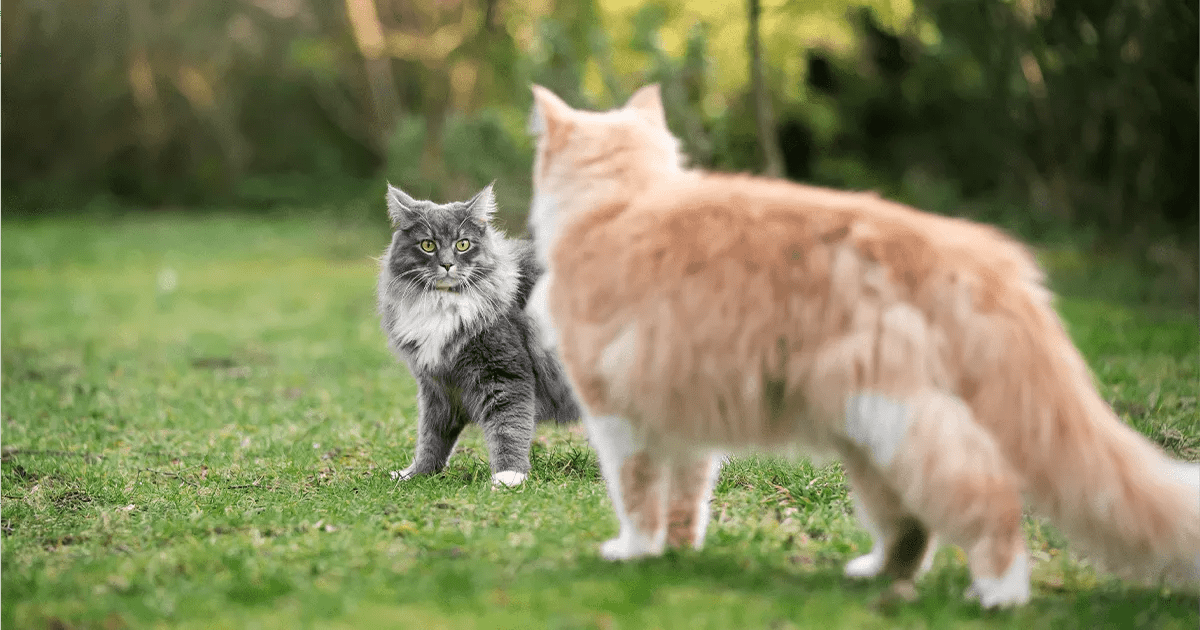
Anxiety When Seeing Other Cats
The anxiety caused by the presence of another cat can often lead to hyper-vigilance; a state of constantly being on the lookout for other cats entering their territory. Cats experiencing hyper-vigilance are usually ready to jump up at a moment's notice to defend their territory and may rush outside to chase other cats away.
This need to protect their territory can be relentless and comes with a significant degree of stress – and stress is associated with physical conditions such as Feline Lower Urinary Tract Disease and reduced immune function, among other problems.
Alternatively, cats may become fearful and spend excessive time hiding, particularly if they have experienced an ambush or had a rival cat come into their home. This reaction is just as stressful and can severely affect a cat’s quality of life.
A common behavioural problem that tends to arise from this stress is urine spraying, a classic example of a cat attempting to mark their territory both inside and outside, to mentally fortify their home and increase feelings of safety and reassurance.
A cat may even begin toileting in inappropriate places if they feel threatened when outside or using an exposed litter tray. Spending so much time in a negative emotional state can result in aggression towards owners or other cats in the household.
And finally, redirected aggression is a common consequence if they are agitated by an unfamiliar cat but are unable to get to it (or are too scared to chase it away). If this happens, the aggression can be directed towards another cat or person in the home. This can be very serious and can cause a breakdown in their relationships.
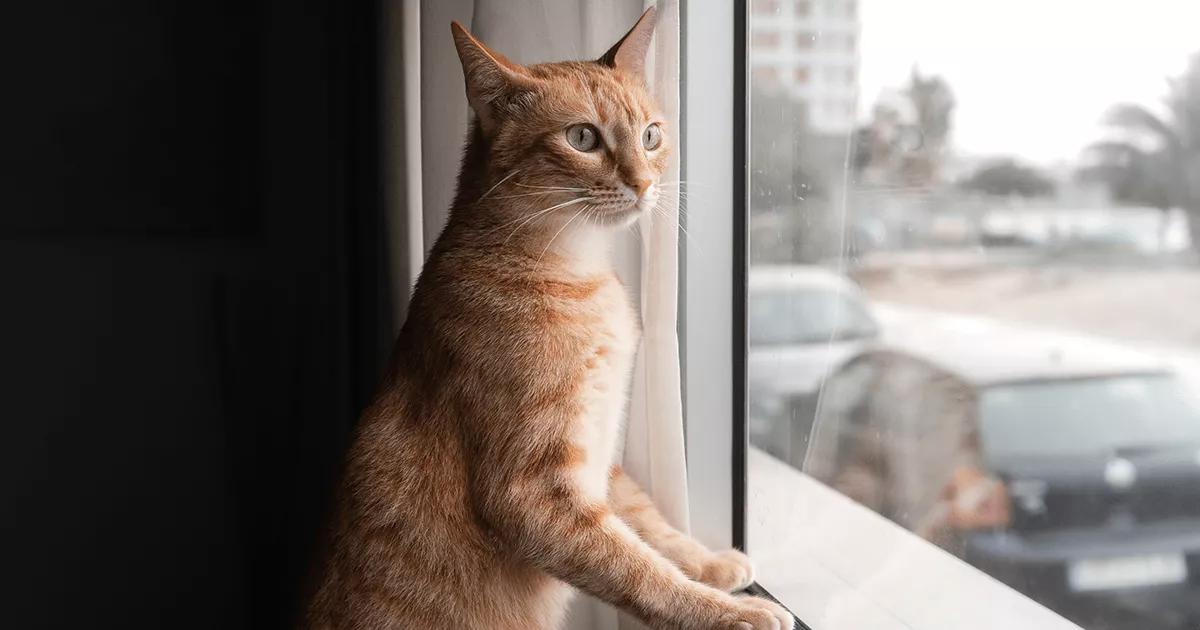
How to Keep Other Cats Away
While it may seem like a challenge to control the behaviour of other cats, there are measures that cat owners can put in place to help manage the situation:
- Install a microchip cat flap to prevent other cats from entering the home.
- Be vigilant when leaving doors and windows open in warmer weather.
- Keep your cats’ food away from open doors, cat flaps or windows, so it doesn’t tempt other cats inside.
- Place cat-proof fencing in your garden, so no cats can come in it.
- Create a timeshare arrangement with other cat owners whereby each cat can access common territories at different times of the day.
- Install physical barriers such as shrubs, furniture or frosted covers on windows to maximise privacy and prevent staring and intimidation.
- Provide additional exits for your cat, in case one or more happens to be blocked.
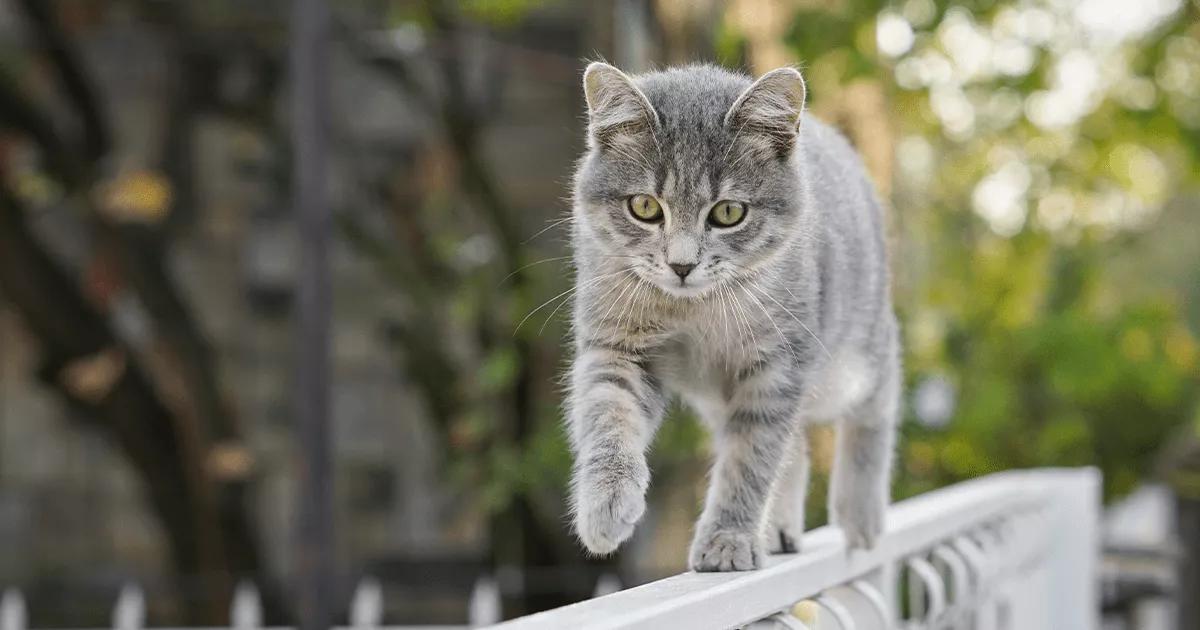
Though we may not have full control over the behaviour of other cats, we can focus on helping our own cats feel less stressed. FELIWAY Optimum is a useful addition here, helping to promote feelings of harmony and reassurance.
The key is to manage the situation, as the popularity of cats as pets means that territorial conflicts will remain commonplace, especially in urban environments. With appropriate management, owners can reduce stress and allow most cats to cope without any issues.

































